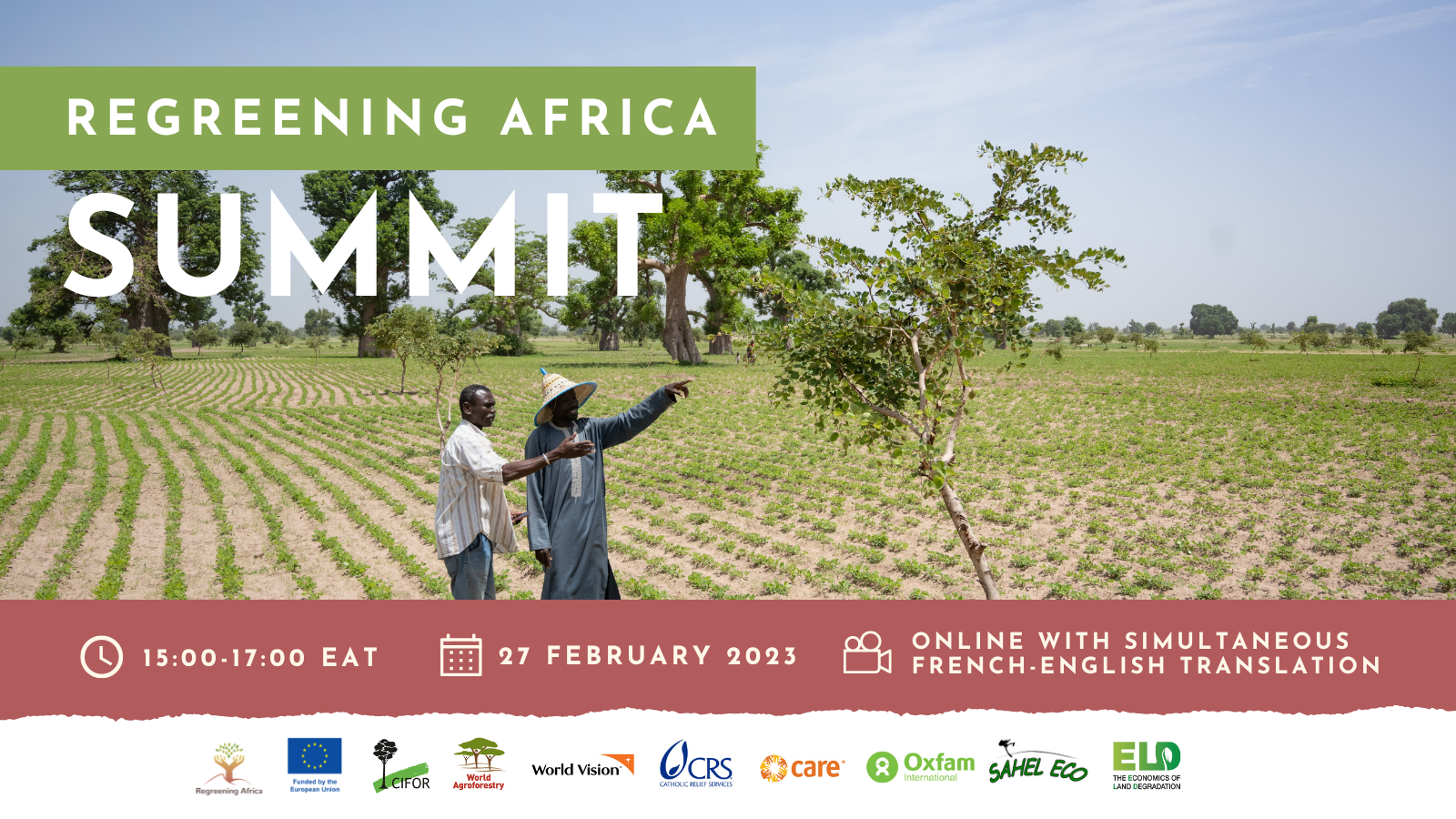
Regreening Africa Summit Resources
As part of a larger global and regional effort to halt and reverse land degradation, from 2017 to 2023 Regreening Africa has been improving smallholder livelihoods, food security, and resilience to climate change in eight countries in sub-Sahara Africa by restoring ecosystem services. In its first phase, the programme has helped to reverse at least one million hectares of land degradation, benefitting 500,000 households in the process and catalysing an even larger scaling effort to restore tens of millions of hectares of degraded land across Africa.
Five years after implementation began, it is time to look back and reflect. Join us for the Regreening Africa Summit on Monday, 27 February 2023, as we unpack insights, lessons and achievements from the programme, as well as the way forward for Regreening Africa and restoration on the continent.
The online session will commence at 15:00 EAT and will have simultaneous French-English translation.
Regreening Africa works to support people in their efforts to restore their landscapes to secure sustainable benefits while boosting the impact of invested resources. At the local scale, the project works with smallholder farmers through lead farmers, farmer groups, community-based organizations, extension staff, and local government to provide technical support. On a sub-national and national scale, the programme works with a range of stakeholders to share lessons and technical support as well as to create an enabling policy and institutional environment. Some of our various stakeholders will be joining us in sharing their journey and reflections.
Regreening Africa Summit Programme
Time (EAT)
Activity
Presenter
14.50-15.05
15.05-15.10
15.05-15.10
15:10 – 15:45
15.45- 16.00
16.00-16.10
16.10-16.50
16.50-16.55
16.55- 17.00
Welcome & Event Outline.
Opening Remarks.
A Local Perspective on the Value of Restoring Livelihoods Through Landscapes.
From Farm Polygon to Continent: The Great Big Zoom-out Show.
Science, Practice, and Policy.
Short Break: Fireside, Video and Q&A.
The Implications of Regreening Africa’s Lessons and Achievements for Restoration in Africa and Globally.
Key Messages and the Way Forward.
Where to From Here?
FACILITATOR:
Marie Parramon-Gurney, SKULTCHA
Hans Christian Stausboll, Acting Director, European Commission Africa
Adrian Leitoro, Global Landscapes Forum (GLF)
Issoufou M.Kandeg, a farmer in Niger (Video)
Tor-Gunnar Vagen, CIFOR-ICRAF
Hamed Tchibozo, World Vision Niger
Djalal Arinloye, CIFOR-ICRAF
Mawa Karambiri, CIFOR-ICRAF
Mieke Bourne, CIFOR-ICRAF
MODERATOR:
Patrick Worms, CIFOR-ICRAF
PANEL:
Tor-Gunnar Vagen, CIFOR-ICRAF
Mawa Karambiri, CIFOR-ICRAF
Djalal Arinloye, CIFOR-ICRAF
Leigh Ann Winowiecki, CIFOR-ICRAF
Hilda Kegode, CIFOR-ICRAF
FACILITATOR:
Marie Parramon-Gurney, SKULTCHA
PANELISTS:
Louise Baker, UNCCD
Susan Chomba, WRI Africa
Pauline Okumu, World Vision Rwanda
Mamadou Diakhité, AUDA-NEPAD
Christophe Besacier, FAO
Lori Pearson, CRS
Martin Frick, WFP
Ravi Prabhu, CIFOR-ICRAF
Marie Parramon-Gurney, SKULTCHA
Mieke Bourne, CIFOR-ICRAF
Tony Rinaudo, World Vision Australia
FACILITATOR, MODERATORS, SPEAKERS, AND PANELISTS
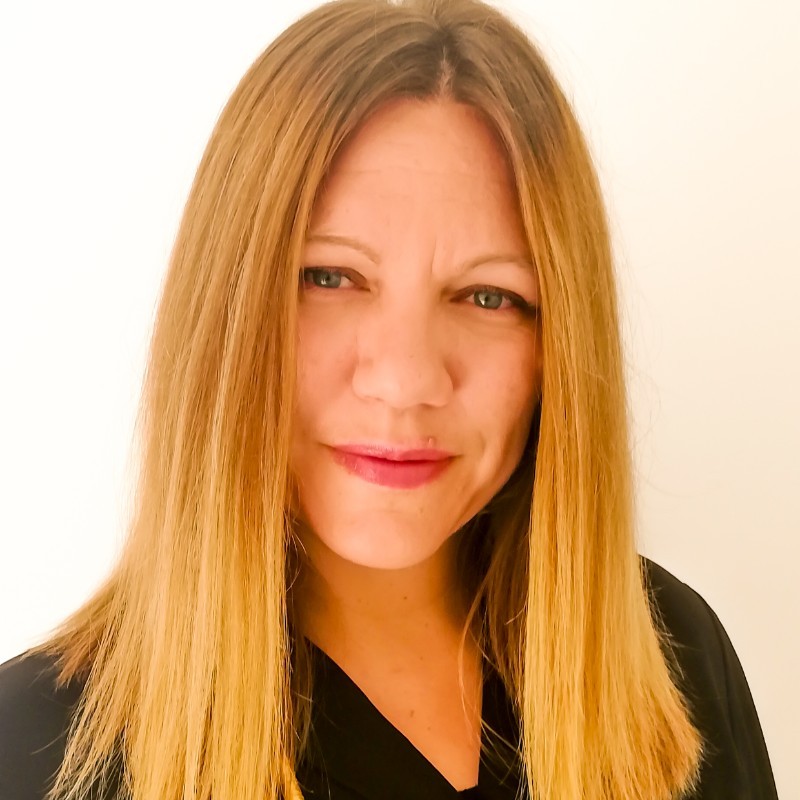
FACILITATOR
Dr Marie Parramon-Gurney, CEO and Chief Transformative Impact Officer, SKULTCHA
Marie has more than 20 years of experience as a sustainability expert in Africa. She has worked with the private sector, governments and non-governmental organizations to develop continental policy and implement projects on the ground. She is a recognised expert on environmental law, climate change, green and inclusive growth, and the mainstreaming of sustainability into development. She is also the CEO and Chief Transformative Impact Officer at Skultcha, a purpose-driven organisation that is shifting culture for a better world.
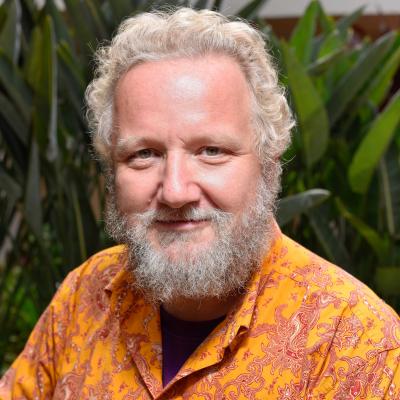
PANEL MODERATOR
Patrick Worms, Senior Science Policy Advisor, World Agroforestry (CIFOR-ICRAF)
Patrick is a Senior Science Policy Advisor at World Agroforestry and has been active in the science-policy interface since the late 1980s. In addition to his work at World Agroforestry, Patrick also serves as the President of the European Agroforestry Federation (EURAF), a Trustee and Treasurer of the International Union of Agroforestry (IUAF), a member of the Steering Committee of International Land Lives Peace which works at the interface between land degradation and conflict, a Senior Fellow of the Global Evergreening Alliance and a member of several advisory boards.
SPEAKERS AND PANELISTS
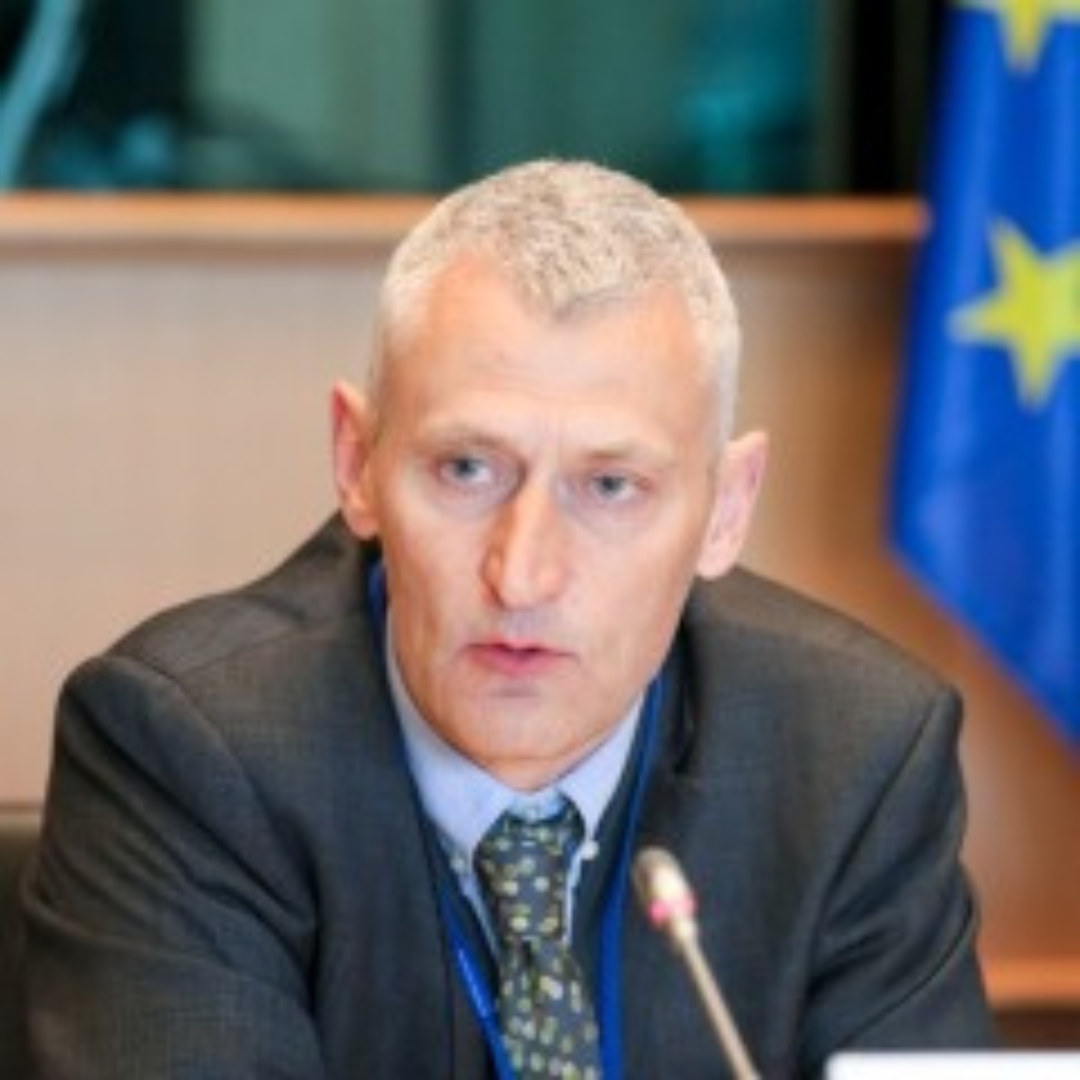
Hans Christian Stausboll, Acting Director, European Commission Africa
Hans is a senior European Commission official with over 25 years of experience in development policy and practice, including in the field. Since August 2022, he is acting Director for Africa (INTPA A), and in parallel, he is the Head of Unit for Regional and Multi-Country Programmes for Africa (INTPA A2) since January 2021.
From 2012 to 2021, he was Head of Unit for Horn of Africa/East Africa and regional programmes in Eastern and Southern Africa in DG International Cooperation and Development where he steered development cooperation for Burundi, Djibouti, Eritrea, Ethiopia, Kenya, Rwanda, Somalia, South Sudan, Sudan, Uganda and Tanzania. Before joining the Commission in 1993, he worked for the Danish Ministry of Environment.

Christophe Besacier, Senior Forestry Officer- Forest and Landscape Restoration Coordinator, United Nations Food and Agriculture Organisation (UN FAO)
Christophe is a Senior Forestry Officer and is currently coordinating the Forest and Landscape Restoration Mechanism at FAO, where he provides technical assistance and implements restoration projects in more than 20 countries. He has mobilised resources to scale-up restoration, amasing a 40 million USD portfolio with multiple key financial partners. He is involved in major international restoration initiatives such as the Bonn Challenge, the Global Partnership on Forest and Landscape Restoration, and the UN Decade on Ecosystem Restoration.
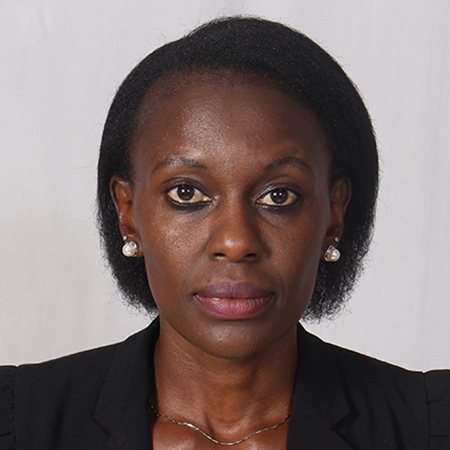
Hilda Kegode, Impact Assessment and Acceleration (IAA) Specialist, CIFOR-ICRAF
Hilda is currently pursuing her Doctorate in Environmental/ Natural Resource Economics at the University of Pretoria. She obtained a Masters degree in Environmental Economics, then began working on impact assessment and acceleration with World Agroforestry in East and West Africa. Her professional goal is to be an impact evaluation specialist in the areas of natural resource management and rural development, incorporating the views and needs of women.
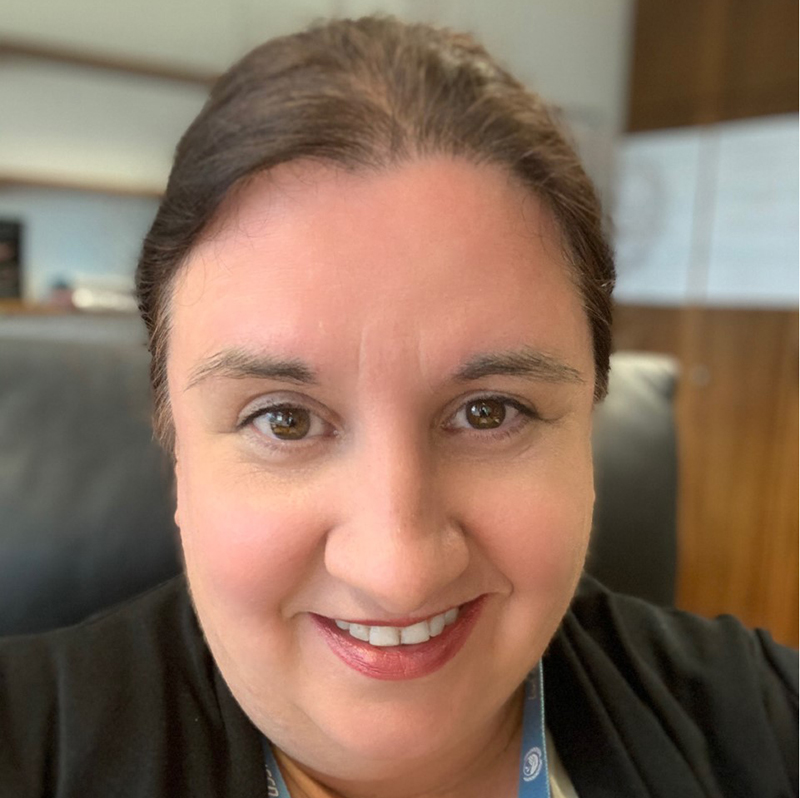
Louise Baker, Global Mechanism Managing Director, United Nations Convention to Combat Desertification (UNCCD)
Louise is the Managing Director of the Global Mechanism at the UNCCD. She joined the UNCCD in 2011, with previous United Nations assignments including high-profile public health campaigns on immunisation, tuberculosis and tobacco control for the World Health Organisation (WHO). Currently, Louise leads a diverse team that manages the Great Green Wall Accelerator programme for the Sahara and the Sahel, works with the G20 on their Global Initiative on Reducing Land Degradation and Conserving Terrestrial Ecosystems, and supports the 3S Initiative on Security, Stability and Sustainability in Africa.

Mamadou Diakhité, Acting Head of the Environmental Sustainability Division and AFR100 Secretariat Manager, African Union Development Agency (AUDA-NEPAD)
Mamadou is the Acting Head of the Environmental Sustainability Division at the AUDA-NEPAD. He leads, among other programs, the agency’s work on the African Forest and Landscape Initiative (AFR100), as well as work on agriculture, food security and environmental issues. Prior to joining the AUDA-NEPAD, he worked at the United Nations Environment Programme (UNEP) contributing to the implementation of the UNEP Green Economy Initiative.
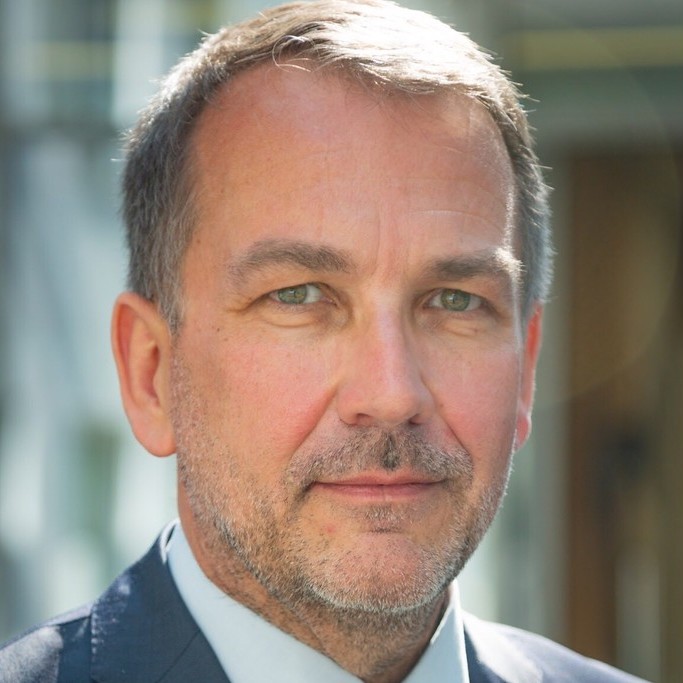
Dr Martin Frick, Director, World Food Programme (WFP) Global Office
Martin is the Director of the WFP Global Office in Berlin. He has previously served as Director of the Climate and Environment Division at the United Nations Food and Agriculture Organisation (UN FAO), and the Representative of Germany to the International Organisations in-country, including the Secretariats of the UN Convention to Combat Climate Change (UNFCCC), and the UN Convention to Combat Desertification (UNCCD). From 2007 to 2010 Martin was the Programme Director of Kofi Annan’s Global Humanitarian Forum which became responsible for groundbreaking work on climate justice.

Dr Ravi Prabhu, Director General a.i., CIFOR-ICRAF
Ravi is the Director General a.i., at the Center for International Forestry Research (CIFOR) and World Agroforestry (ICRAF). He is also a hugely accomplished Scientist who has engaged in multidisciplinary research and action in forested landscapes for almost 20 years with organisations including the United Nations Environment Programme (UNEP) and the Consortium of International Agricultural Research Center (GIAR). In 2005, he received the Queen’s Award for Forestry at Buckingham Palace for his work on criteria and indicators for sustainable forest management. In 2012 he joined World Agroforestry as Deputy Director General, and he has served on numerous international initiatives and committees.
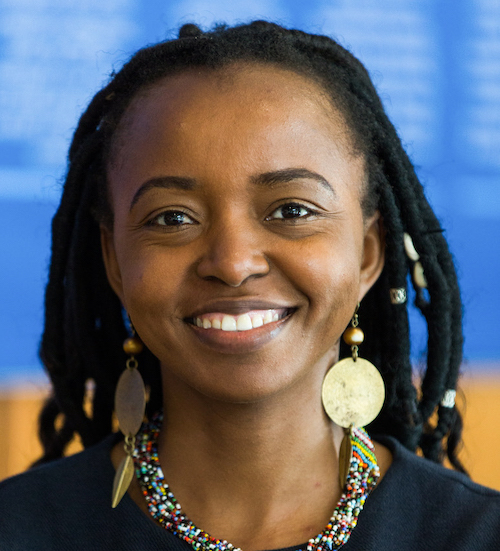
Dr Susan Chomba, Director, Vital Landscapes, World Resources Institute Africa (WRI)
Susan is the Director of Vital Landscapes for Africa at the WRI. She leads the institution’s work on forest landscape restoration, sustainable agriculture/food systems, and thriving rural livelihoods in Africa. Susan is a scientist with over 15 years of research and development experience in Africa. She previously led the Regreening Africa programme, is a member of the African Academy of Sciences (AAS), and an Associate Editor for Political Ecology at the international Journal, Frontiers in Human Dynamics.

Adrian Leitoro, Co-founder of Nature and People as One (NaPO) and Dryland Restoration Steward, Global Landscapes Forum (GLF)
Adrian is the 2022 Dryland Restoration Steward at the Global Landscapes Forum. He is also Co-founder of NaPO, an organisation that works with the indigenous Rendille and Samburu communities who have and continue to protect biodiversity-rich hotspots in Northern Kenya. From an academic perspective, Adrian is pursuing a Masters degree in Climate Change Adaptation, focusing on Nature Based Solutions, at the University of Nairobi.

Hamed Tchibozo, Regreening Africa Project Coordinator, World Vision Niger
Hamed is a Regreening Africa Project Coordinator at World Vision in Niger. He is an agricultural engineering expert with over 10 years of experience in agricultural production and rural development. He is also passionate about environmental conservation and works as the focal point person for sustainable management of natural resources, adaptation to climate change and community resilience at Regreening Africa.
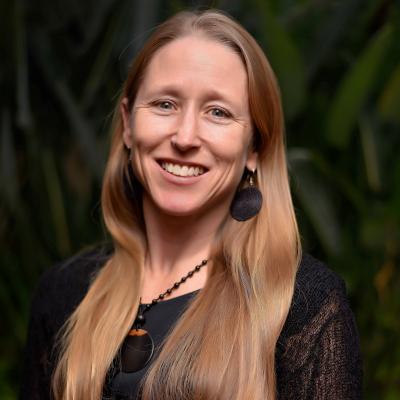
Leigh Ann Winowiecki, Soil and Land Health Research Lead, CIFOR-ICRAF
Leigh Ann is the Global Research Leader of Soil and Land Health at World Agroforestry. As a Soil Scientist, her research focuses on scaling farmer-centered landscape restoration, understanding degradation drivers and quantifying the impact of land management on soil organic carbon. She has co-led, among others, the flagship program on Restoration of Degraded Lands (RDL), the Coalition of Action 4 Soil Health (CA4SH) which was inspired by the UN Food Systems Summit, and the Land Degradation Surveillance Framework (LDSF).
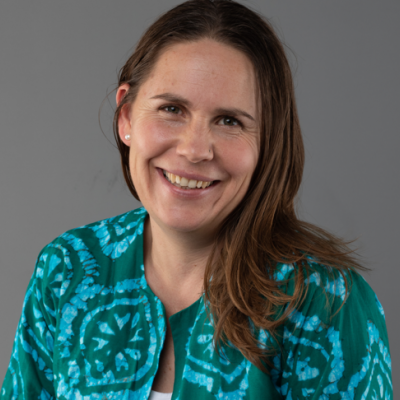
Mieke Bourne, Regreening Africa Programme Manager, CIFOR-ICRAF
Mieke is the Programme Manager for Regreening Africa. She is also an engagement process specialist who works at the intersection between science, policy and practice, and is a co-developer of the Stakeholder Approach to Risk-informed and Evidence-based Decision-making (SHARED). Mieke has over 13 years of experience working on natural resource management, community-based approaches and facilitation. She has worked in the global tropics with a focus on Sub-Saharan Africa for the past 10 years.

Tony Rinaudo, Principal Natural Resources Advisor, World Vision Australia
Tony, who is widely known as the “forest maker”, is an Australian Agronomist and the Principal Advisor for Natural Resources Management at World Vision Australia. He has decades of experience in the development and promotion of agricultural-forestry-pastoral systems across a range of environments, including 18 years spent in Niger managing a long-term agricultural development program. He is one of the key figures in the development of Farmer Managed Natural Regeneration (FMNR), a low-cost land restoration technique that was introduced in 1983 in the Niger area. Championed by Tony, FMNR has now spread over 18 countries in the Sahel and beyond.
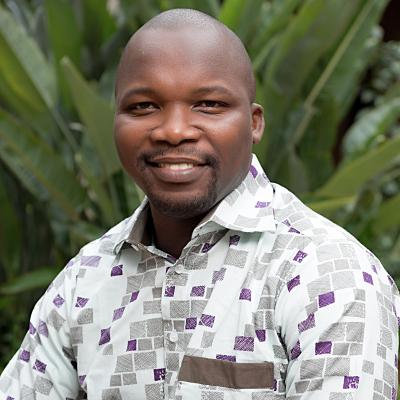
Dr Djalal Arinloye, Project Coordinator, CIFOR-ICRAF
Djalal serves as Coordinator for the following projects at World Agroforestry: Agroforestry Technologies Scaling-up, Regreening Africa Sahel, Climate Smart Agriculture Agroforestry and Fodder Crops Promotion, Benin Ecosystem-Based Adaptation and Forest Management, West Africa Regional Soil Fertility Mapping, and Spatial Assessments of Changes in Soil Health Indicators in Benin. He has over 15 years of experience in the areas of marketing, value chains, technologies, up and out scaling, and public-private partnerships development in West African countries and institutions.

Dr Mawa Karambiri, Regreening Africa Policy and Technical Engagement Specialist, CIFOR-ICRAF
Mawa has a background in sociology. She currently serves as a Policy and Technical Engagement Specialist for the Sahel in the Regreening Africa Project. She is also a visiting scholar at the University of Helsinki, with research interests including sustainability, forest governance, land restoration, gender inequality and social justice. Before joining World Agroforestry, Mawa was a Postdoctoral Researcher under the Chair of International Forest Policy at the University of Helsinki, where she completed her PhD degree in Forest Sciences.
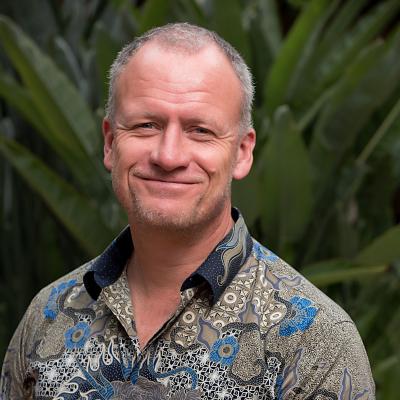
Dr Tor-Gunnar Vagen, Principal Scientist and Head Spatial Data Science and Applied Learning Lab (SPACIAL), CIFOR-ICRAF
Tor is a Principal Scientist and Head of the GeoScience lab at World Agroforestry. He has a varied background in soil science, hydrology, landscape ecology, statistical modeling and remote sensing. Tor has co-led the development and application of the Land Degradation Surveillance Framework (LDSF), which has been implemented in various projects across the global tropics. Currently, he leads research initiatives to establish global data-driven networks of sites for comparative assessments of ecosystem health, including linkages between biophysical and socio-economic variables in order to understand drivers of deforestation, land use change and land degradation processes across the global tropics.
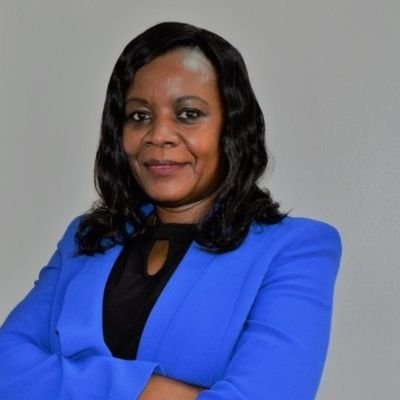
Pauline Okumu, International Representative, World Vision Rwanda
Pauline is the World Vision International Representative in Rwanda. Previously, she has served as a Senior Director of Water Sanitation and Hygiene for World Vision International, a National Director for World Vision International, Rwanda, Lesotho, and Swaziland, a Deputy National Director for World Vision Kenya, and an acting National Director for World Vision South Africa. She is also a seasoned humanitarian and development practitioner, with over 25 years of experience in leadership, program planning and management, financial management, resource mobilisation, operations management, donor and stakeholder engagement, and compliance.
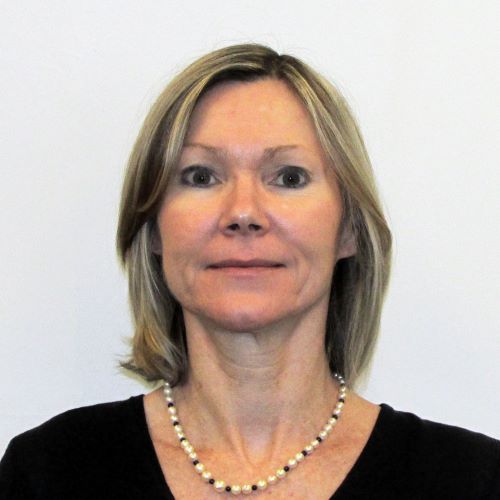
Lori Pearson, Senior Technical Advisor for Food Security and Climate Change, Catholic Relief Services (CRS)
Lori is the Senior Technical Advisor for Food Security and Climate Change at CRS, and serves as Team Lead for the Natural Resource Management/Climate Change team. As a member of CRS’ Agriculture and Livelihoods, she focuses on the climate and food security nexus in CRS’ agricultural programs. As restoration of degraded land and soil health are a priority for CRS, Lori also co-leads a 10-year strategic initiative to scale restoration of degraded agricultural lands as a pathway to improved food security and climate adaptation for small-scale producers. She has spent several years in the field, managing food security-related programming in Africa and Latin America, including serving as Country Representative in Benin and Assistant Country Representative in Peru.
